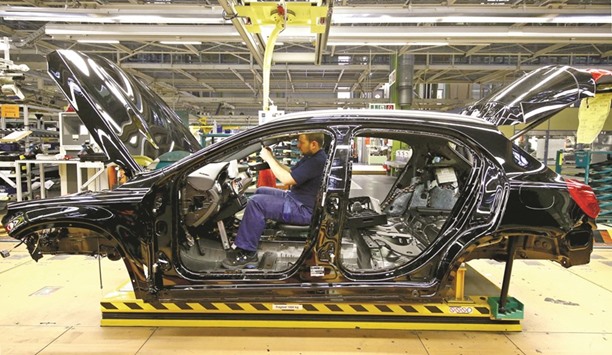The German economy will lose steam in the second half of 2016 as weaker foreign demand causes industrial output to slow, the Finance Ministry said yesterday, another sign that Europe’s biggest economy is set for a slowdown.
Strong private consumption, higher state spending and rising construction activity helped the economy to grow by 0.7% in the first quarter and by 0.4% in the second.
“German economic growth was robust in the first half of the year,” the Finance Ministry said in its monthly report.”But the latest economic data indicate a slowdown in economic momentum in the second half of the year.”
Growth in industrial orders nearly halted in July and factory output and exports unexpectedly fell, suggesting manufacturing started the third quarter on a weak footing.
The ministry blamed sluggish foreign demand for low industrial activity, saying it expected subdued factory output for the rest of the year.
The economy will continue to grow, however, as private consumption is boosted by record-high employment and rising real wages and the government spends billions of euros to accommodate and integrate a record influx of migrants.
“The economic upswing remains intact,” the ministry said.
In another positive sign for domestic demand, real wages rose by 2.3% on the year in the second quarter, the Federal Statistics Office said.
Nominal wages increased by 2.4% as consumer prices edged up by 0.1%.
The rise was mainly driven by strong wage increases for workers in real estate, transport and logistics and catering. Germany’s vibrant domestic economic activity pushed up tax revenues for the federal government and 16 states by 4.1% in the first eight months of 2016, the ministry said.
That is above the projected full-year rise of 3%. A buoyant tax take is enabling Finance Minister Wolfgang Schaeuble to boost state spending on migrants, roads and digital infrastructure without taking on new debt, and so stick to his cherished goal of a balanced budget before next year’s election. The German government expects soaring private consumption, higher construction activity and increased state spending on migrants to help the economy to grow by 1.7% this year.
The Organisation for Economic Cooperation and Development (OECD) sees slower growth of 1.3% next year from 1.9% this year. Adjusted for working days, the OECD predicts German growth of 1.8% in 2016 and 1.5% in 2017.

An employee of Mercedes Benz works on the interior of a GLA model at their production line at the factory in Rastatt. German economic growth was robust in the first half of the year, the Finance Ministry said in its monthly report. But the latest economic data indicate a slowdown in economic momentum in the second half of the year.
